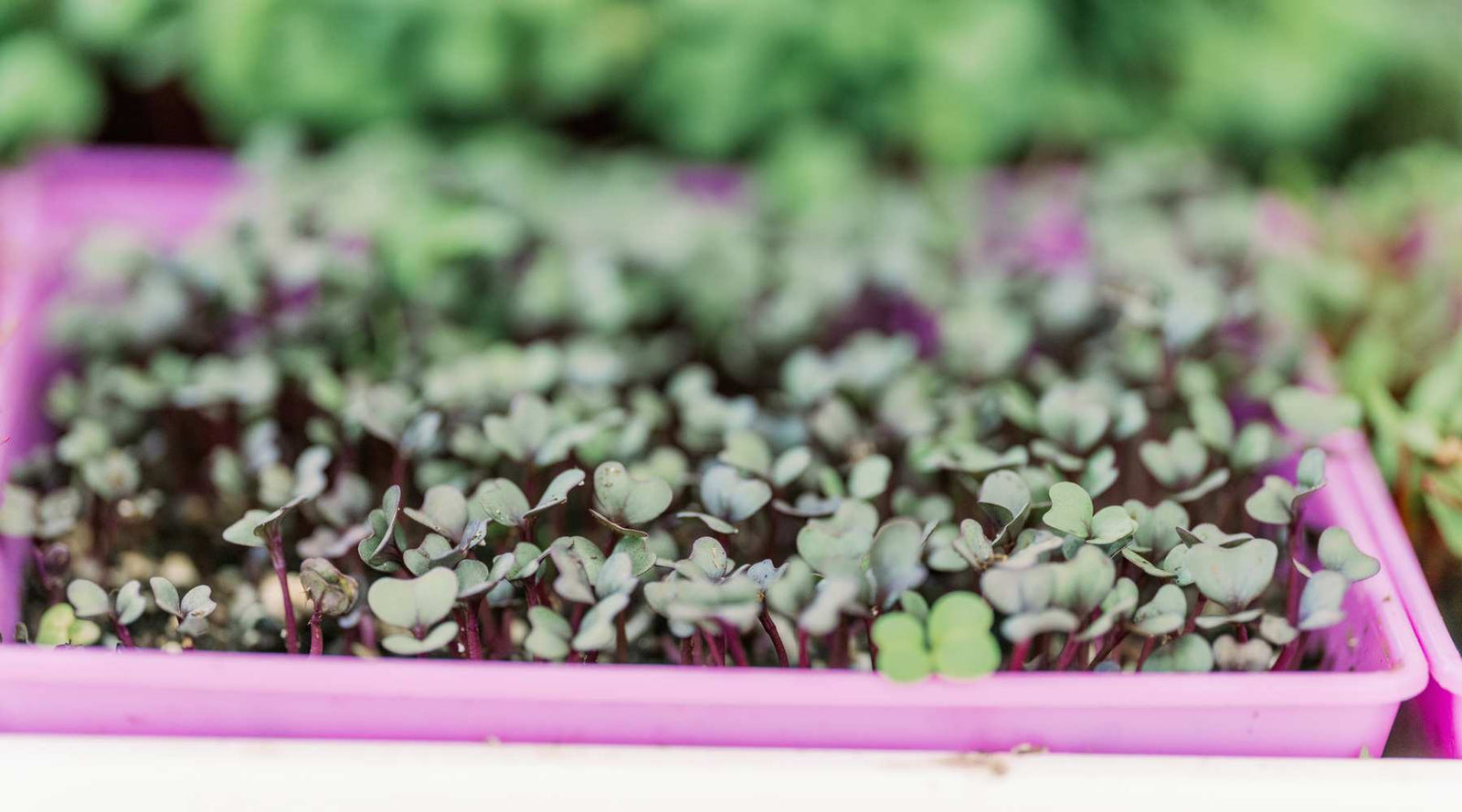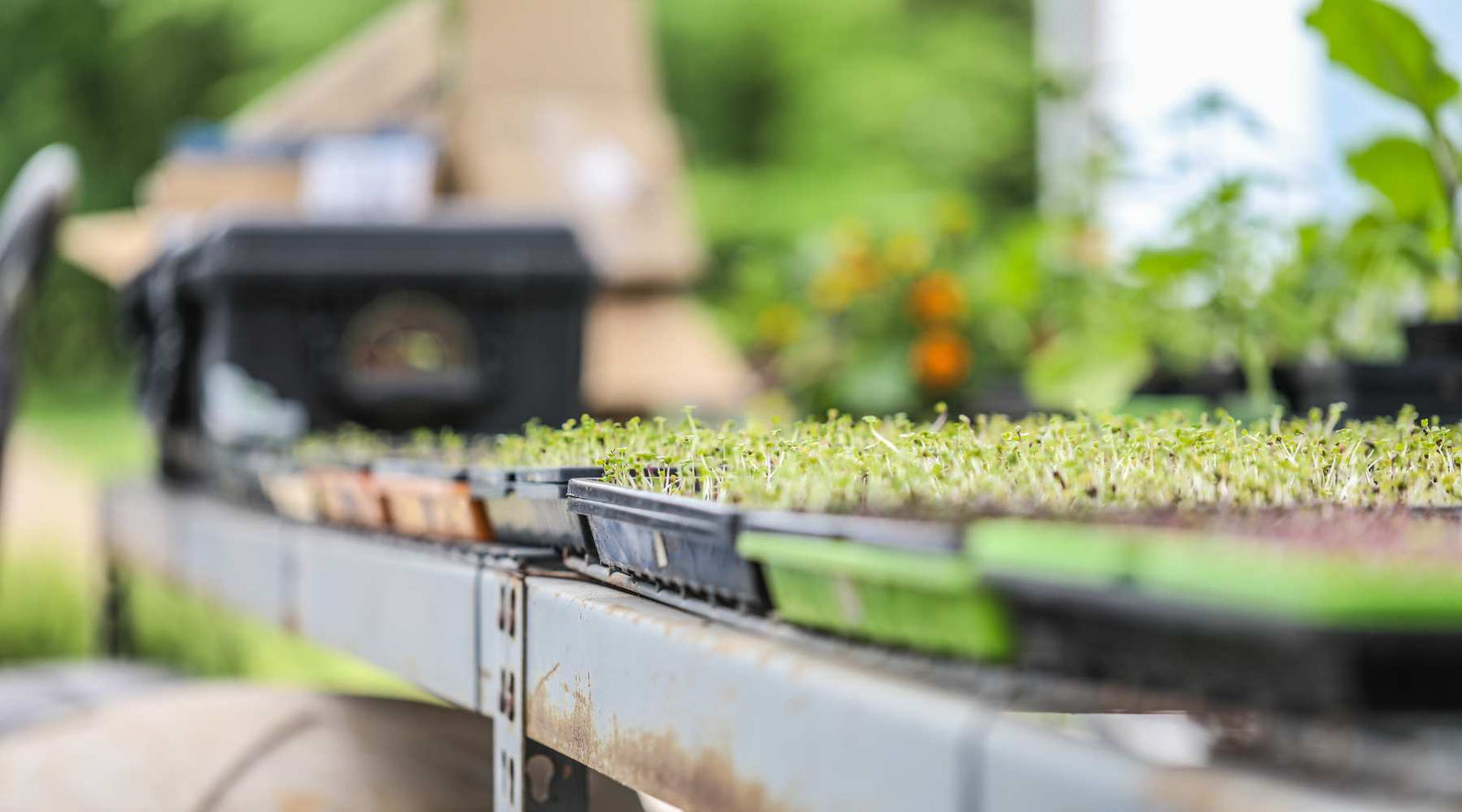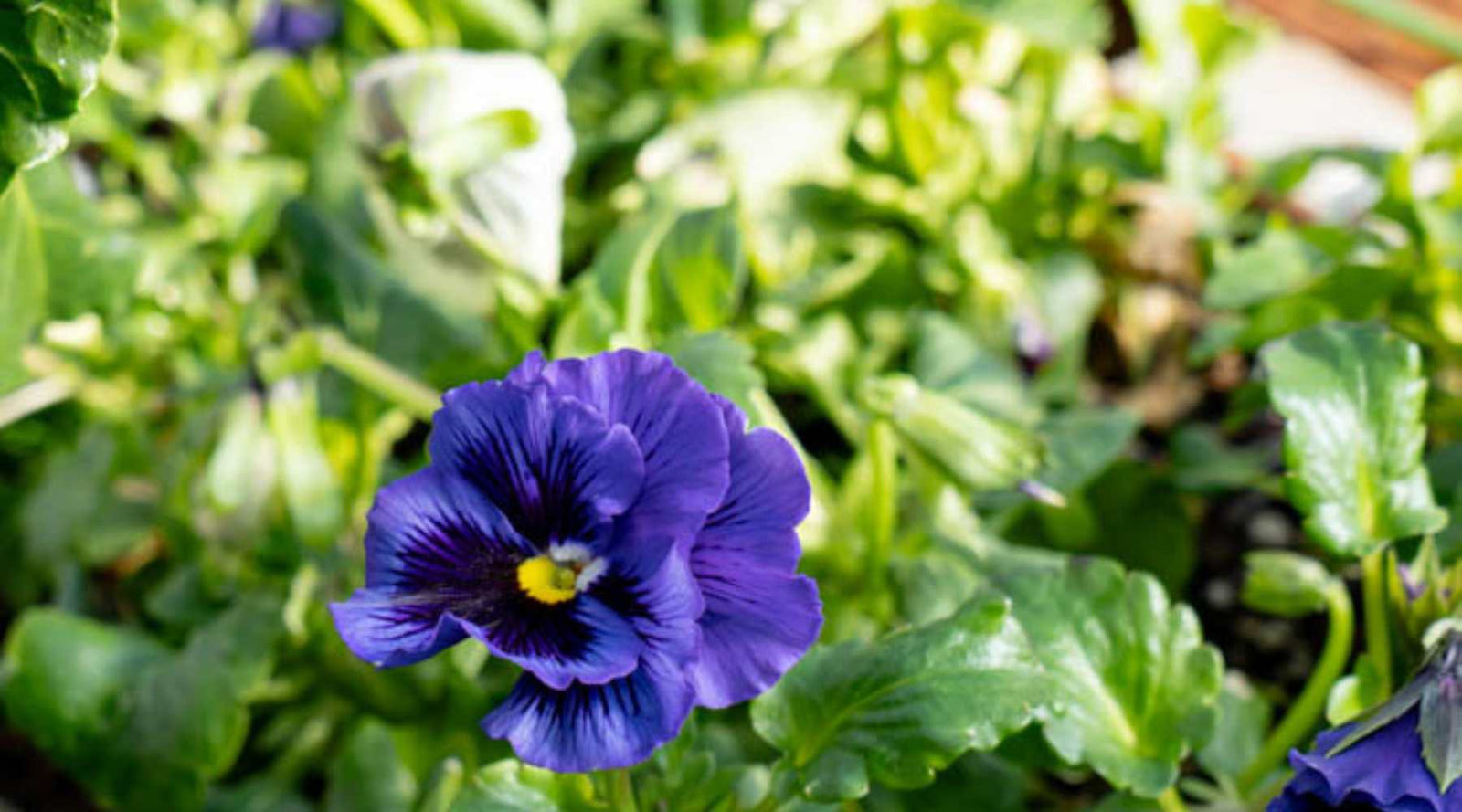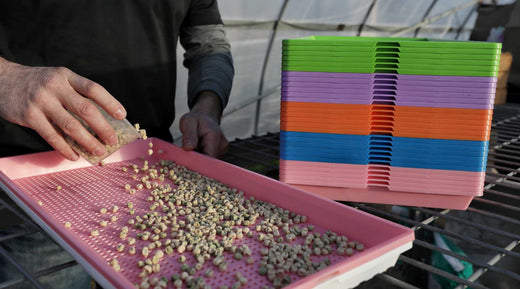Free Shipping on Orders over $75 to the Contiguous US
Free Shipping on Orders over $75 to the Contiguous US
What Can Microgreens Do for Your Health?
December 27, 2023 2 min read 0 Comments

What Are Microgreens?
Microgreens are just baby edible versions of many vegetables & herbs. They are cut & harvested usually around a week after germinating. Stored in the seed are a TON of nutrients when you consider it on a per weight basis. Seeds store nutrients to get themselves going. They need this energy to establish roots in order to extract nutrients from the ground. Since we're cutting it right as its developing roots, all that nutrition went up into forming its first set of true leaves, which are the ones we eat!
Check out Learn How to Grow Microgreens at Home | A Step-by-Step Guide.

What's the Science Say?
Opinions aside. Research on microgreens overall, is still lacking. That doesn't mean they should be ignored or disregarded, quite the opposite actually based on early findings.
Let's look at the most "authoritative" source we have, the US Department of Agriculture, which has said in a study, the leaves of almost all microgreens have “four to six times more nutrients than the mature leaves of the same plant.”
Dr. Gene Lester, a USDA researcher in the study points out, “All of these nutrients are extremely important for skin, eyes, and fighting cancer and have all sorts of benefits associated with them.”
Quite impressive so far.... but let's keep looking.
The University of Maryland recently did a study on 25 varieties of microgreens and got some interesting results. Microgreens almost all had higher nutrient concentrations as we've already found, but all micro's posed varying benefits and levels of vitamins. For example, microgreens are rich in Vitamin C, but low in Vitamin E. Green daikon radish microgreens were rich in Vitamin E but low in Lutein compared to amaranth, cabbage or cilantro.
So, if you're looking for a supplementation of a particular vitamin through microgreens, this is the study to dig into.
The same study also tested microgreens on mice, controlling for several differing diets. This showed that microgreens seemed to improve factors like blood-cholesterol levels and weight control. These are only mice, but still worth noting.
Most Nutritious Microgreens
This same study took the time to point out 4 of the 25 microgreens which have the highest concentrations of four different vitamins and carotenoids:
- Red Cabbage
- Green Daikon Radish
- Cilantro
- Garnet Amaranth.
Check out Top 10 Microgreens to Grow for more suggestions on microgreen varieties.
Microgreens are Pesticide Free
Besides the nutrition, the absolute best part of eating microgreens is that they require No Chemicals of any kind! Just pure H20.... (Check out How to Water Microgreens | Which Method is Best.) And since you can grow them on your own countertop, you are in complete control, you know what you are eating is completely clean. When else can you say that?
So, I think this is a good start. Microgreens are gaining in popularity, and with that increased consumer demand, the studies will continue to come in and shed light on these special little plants.
Growing Microgreens at Home
You can grow microgreens in the kitchen (or anywhere indoors)! You can grow microgreens on a window sill, under a grow light, or even outside! For help getting started, check out our microgreen resources.
Also in Microgreens Guides & Resources

How to Market Microgreens: Strategies That Get Results
March 27, 2025 13 min read 0 Comments
In this article, we’ll help you stay at the top of your microgreen game to help you succeed in this exciting venture.

Must-Know Tips for Edible Flower Farming Success
October 20, 2025 9 min read 0 Comments
Learn how to expand your markets, what popular edible flowers to offer, marketing tips, new trends, and best practices.

What Lights Do I Need to Grow Microgreens?
January 13, 2025 10 min read 0 Comments
Recent Articles
- How to Market Microgreens: Strategies That Get Results
- Must-Know Tips for Edible Flower Farming Success
- What Lights Do I Need to Grow Microgreens?
- How To Grow Microgreens Indoors - SEED to HARVEST
- A Quick Guide to Starting a Microgreens Business
- How and When to Use 10x10 Microgreen Trays to Grow Nutrient-Packed Greens
- How to Disinfect Seeds Before Planting and Sprouting
- Top 5 Best Growing Mediums for Microgreens
- What Trays Do You Need for Microgreens and Propagation?
- Top Ten Microgreens to Grow
Subscribe
Sign up to get the latest on sales, new releases and more …
